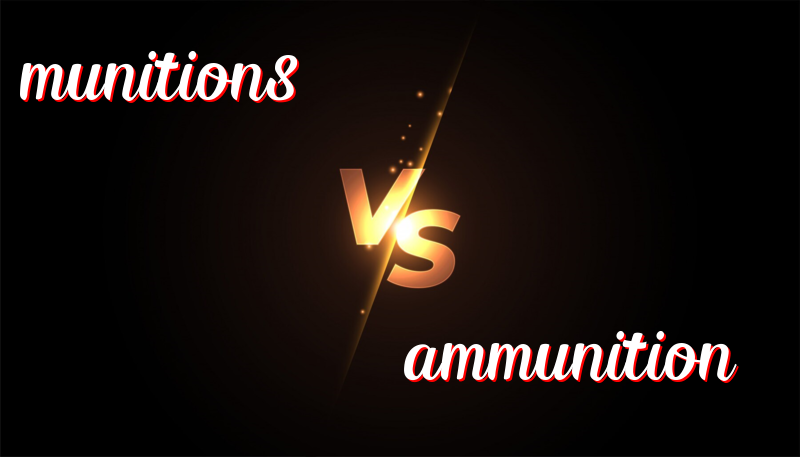英語單詞munitions 與 ammunition的區別
September 10, 2024
在學習英文的過程中,上次我們討論過「munitions」和「ammunition」的區別。這兩個詞常常被混淆,但其實它們有著非常不同的使用方式和歷史。
詞源及歷史
「Munitions」來自法文的「munition」,最早在15世紀用於指所有軍事材料,但隨著時間的推移,它的意思逐漸集中在武器和軍需品。「Ammunition」來自法語的「munition」,但更狹義,具體指彈藥狀材料,如子彈、炮彈和火藥。
如何使用這些詞
「Munitions」通常指的是所有軍事相關的供應,包括武器、彈藥和其他軍需品。在軍事討論中,它是一個較寬泛的詞彙。
例如:
- They transported munitions to the front lines.
他們將軍需品運送到前線。 - The munitions industry’s growth has been significant.
軍需品行業的增長非常顯著。 - Several munitions depots were targeted in the attack.
多個軍需品倉庫在攻擊中成為目標。 - They ran low on munitions during the battle.
他們在戰鬥中耗盡了軍需品。 - Munitions supply was a critical aspect of their strategy.
軍需品供應是他們戰略中的關鍵方面。
「Ammunition」則具體指的是用於射擊的彈藥,比如子彈、炮彈或火藥。它涵蓋範圍要狹窄得多,通常用在具體戰鬥場景或射擊練習中。
例如:
- The soldiers ran out of ammunition during the firefight.
士兵們在槍戰中耗盡了彈藥。 - He counted his remaining ammunition before heading out.
他在出發前清點了剩下的彈藥。 - Ammunition must be stored in a cool, dry place.
彈藥必須存放在涼爽乾燥的地方。 - They received a new supply of ammunition.
他們收到一批新的彈藥供應。 - The rifle uses standard military ammunition.
這支步槍使用標準軍用彈藥。
記住區別的技巧
記住這兩個詞的區別的一個技巧是:如果你談的是「wider range of military supplies」,如武器和其他軍需品,請使用「munitions」。如果你專門指的是「substances and materials used in shooting」,請使用「ammunition」。
摘要
總結來說,「munitions」涵蓋所有軍需品,範圍較廣;而「ammunition」僅指各種彈藥,範圍較窄。掌握這一點在寫作和閱讀中將有助於更準確地表達和理解相關內容。

Leave a Reply
You must be logged in to post a comment.